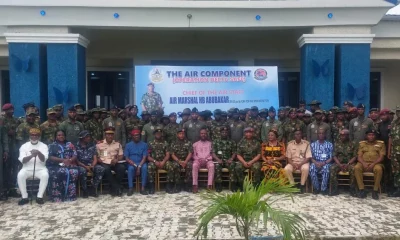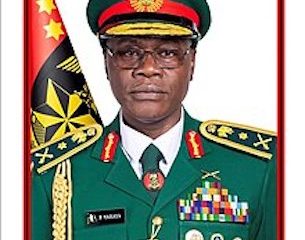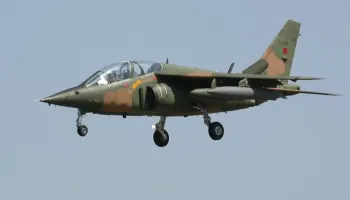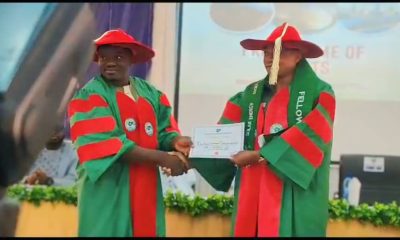DEFENCE
Tackle Root Cause of Insurgency, Banditry, Don urges Govt

Isaac Olawale, a professor of Peace and Conflict Studies, says the current security challenges confronting Nigeria can only be addressed only if the root causes were identified.
Olawale said this at the Nigerian Army Resource Centre 1st Annual Members Summit with the theme,”Nigeria’s Security in the 21st Century: Issues, Challenges and Panacea” on Tuesday in Abuja.
He said that the world was currently faced with issues of international terrorism, environmental degradation, natural disasters, drugs, organised crime, inter-state war, refugee problems, and failed state system.
The professor said that Nigeria was being confronted from “two axes of evil” referring to the Gulf of Guinea and the Sahel, which he said were two specific environments that threw up security problems in Nigeria.
He said that while the country contended with the problem of oil theft around the Gulf of Guinea, the Sahel harboured troublemakers, terrorists, drug cartels, human traffickers and arms proliferation.
According to him, there is no part of Nigeria that is not having its own specific security problems, and with our military overwhelmed at this moment.
“Everywhere you go across the nation, you see high caliber weapons that civilians who have no reason to even know about that even have them all over the place.
“Now what makes the military tick is the training as well as the weapons in the hands of the state officers.
“Now you have similar weapons in the hands of civilians who have no professional training on weapon handling, who have not been introduced to laws of ongoing conflict.
“Our communities are getting totally detached from our security system. There are communities that pretend and no longer speak out.
“So the question is, how do you protect that type of community? How do you protect a community that is paying tax to criminals? How do you protect a community that is protecting criminals?
“Now, to deal with all these problems, my own recommendation is that we need to start with the root causes of the problems.
“Unfortunately, the way we manage our security in Nigeria does not take into consideration the root causes; and so long as you are not dealing with the root causes, you will continue to have the problems because what the military does is to deal with two branches of the tree.
“You deal with the top of the tree, but the root causes are political,” he said.
Olawale urged governments at all levels to work together towards addressing the challenges by adopting all-of-government, all-of-society and all-of-nations approach.
He also advocated that youths be empowered with the requisite training to be able to take up leadership roles, saying there could not be a peaceful state where people have no hope of tomorrow.
The Director-General, Nigerian Army Resource Centre (NARC), retired Maj.-Gen. Garba Wahab, said the summit was organised to discuss, understand and diagnose the problem of insecurity in Nigeria.
Wahab said the issues of insecurity required that all hands must be on deck to find lasting solution, adding that the military and the security agencies alone could not address the myriad of security challenges confronting the country.
He urged participants to brainstorm and make useful recommendations that could stand the test of time, adding that the country had enormous human and material resources needed to confront the issues. (NAN)
DEFENCE
Army Destroys Bandits Camps, Recover Ammunition in Taraba

The troops of 6 Brigade, Sector 3 of Operation Whirl Stroke (OPWS), have destroyed several bandits camps and recovered ammunition in Taraba.This is contained in a statement on Sunday in Jalingo signed by Capt. Olubodunde Oni, Acting Assistant Director Army Public Relations.It said the successes were recorded in a series of clearance operations under Commander of the Brigade, Brig.
Gen. Kingsley Uwa, across multiple bandits hideouts in Taraba. “The operation code named OP GOLDEN PEACE commenced after extensive confidence building patrols, clearance missions, and stakeholder engagements, which proved effective in the northern part of the state.“The latest phase of the operation began on 28 November 2024 in Takum Local Government Area (LGA), focusing on known bandit and terrorist hideouts around Lijam High Ground.”The statement indicated that during the operations, several bandit camps were destroyed, and troops recovered 27 rounds of 7.62mm special ammunition, one AK 47 Magazine, one handheld Baofeng radio and 2 motorcycles.“To further solidify the safety of residents, troops projected force into the Akume and Ananum areas of Donga LGA on 30 November 2024, reinforcing the Brigade’s commitment to securing lives and property throughout Taraba State.”The statement quoted the Commander of the 6 Brigade who commended the troops, urging them to remain vigilant.“Together, we will ensure peace and security across Taraba State and beyond.“This is our determined effort to ensure a safe and secure environment for the ongoing farm harvest season and the forthcoming yuletide and to ensure that the state does not become a safe haven for criminals,” the commander is quoted as saying.(NAN)DEFENCE
Cybersecurity Bedrock of NAF’s Operational Readiness – CAS
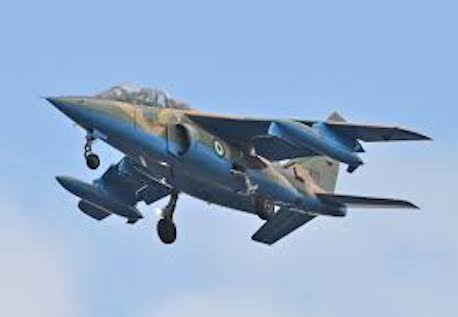
The Chief of the Air Staff (CAS), Air Marshal Hasan Abubakar, says cybersecurity is the bedrock of operational readiness and the key to mission success of the Nigerian Air Force (NAF).
Abubakar said this on Tuesday in Abuja, at the opening of NAF’s Cybersecurity Awareness Training.
He said the training was a vital initiative that would highlight the future of national security in the increasingly interconnected world, where artificial intelligence and advanced technologies play pivotal roles.
According to him, the integration of technology into warfare has ushered in a new era where digital bits and bytes are as formidable as physical bullets and bombs.
“The integrity of our nation’s defence systems, the security of our communications, and the sanctity of our data depend on the strength and resilience of our cybersecurity framework.
“For the NAF, which has distinguished itself as being more technological advanced than other services, cybersecurity is not just an IT concern; it is the bedrock of our operational readiness and the key to mission success.”
The CAS also said that the workshop would serve as a vital part of NAF’s efforts at ensuring that its personnel were equipped to meet the demands of securing the nation’s collective cyber environment.
He added that the recent global events had highlighted the severe consequences of cyberattacks, which could disrupt critical operations and undermine national security.
He disclosed that NAF’s platforms depended on secure digital communications, making them vulnerable to potential hijacking or operational disruptions.
According to him, these vulnerabilities emphasise the urgent need for a proactive and robust approach to cybersecurity within our ranks, which is precisely the focus of our gathering here today.
“Cybersecurity is a continuous journey that demands vigilance, ethical conduct, and a commitment to protecting our nation’s digital infrastructure.
“Let us continue to build a resilient cybersecurity posture that will enable us to stand ready against any threat, known or unknown that may arise in the digital age.”
In his remarks, the Chief of Communications and Information System, NAF, AVM Suleiman Usman, said the training was designed to equipped personnel with the necessary knowledge and tools to protect both physical borders and digital frontiers.
Usman explained that the training had dominated CAS’ strategic intent to develop and sustain optimal operational effectiveness in the NAF.
He said the cybersecurity training was an essential part of their collective mission to secure the integrity of NAF’s information networks.
“Cyber threats are more sophisticated than ever, hence the need for robust and resilient cybersecurity measures against evolving threats becomes ostensible.
“We are not just guarding the airspace but also protecting data, communications and systems that are integral to the success of every mission we undertake,” he said.
In his lecture titled, “Global Trends and Pillars of Cybersecurity for NAF”, Dr Asogbon Godwin, said that NAF must develop comprehensive cyber security policies and laws that addressed various types of cybercrimes.
He said that the cybercrimes include hacking, identity theft, phishing, and malware attacks.
Godwin urged the air force to invest in raising awareness about cybercrime risks and best practices for staying safe online and training investigators and prosecutors on digital forensics and other technical skills needed to investigate cybercrimes.
He also advised NAF to void ‘Bring Your Own Device (BYOD) police and also practice Zero Trust Principle.(NAN)
DEFENCE
Troops Nab Wanted Terrorist, Habu Dogo, 7 IPOB/ESN Terrorists

The Defence Headquarters says the Nigerian troops have in the last one week apprehended a notorious terrorist leader, Abubakar Ibrahim (AKA) Habu Dogo in Sokoto and seven IPOB/ESN commanders in South-East.
The Director, Defence Media Operations, Maj.-Gen. Edward Buba, in a statement on Saturday, said that Habu Dogo was apprehended at Rumji Village in Illela Local Government Area of Sokoto State.
According to him, Habu Dogo is a wanted terrorist on the watch list of security agencies both in Nigeria and in the Niger Republic because of the cross border nature of his terrorist activities.
He said the alleged IPOB/ ESN terror operatives apprehended include; Dr Nnamdi Chukwudoze and Chigozie Ezetoha (AKA Chapet) who were nabbed in Ihiala Local Government Area of Anambra.
“Others are , Mrs Ngozi Chukwuka and Mr Oyekachi Ohia who were arrested in Umuahia South Local Government Area of Abia,”he said.
He said others are, Mr Ifeanyi Eze , Mr Augustine Udemba and Mr Onyedikachi Udemba were arrested in Umunneochi Local Government Area of Abia while, Elijah Mmaduipeya Obumneke was arrested in Orsu Local Government Area of Imo.
“The ongoing counter insurgency and counter terrorism operations has continued to degrade the combat capacity of terrorists across the country,’’ he said. (NAN)

